
Journal Menu
► ▼ Journal Menu-
- IJGI Home
- Aims & Scope
- Editorial Board
- Reviewer Board
- Topical Advisory Panel
- Instructions for Authors
- Special Issues
- Topics
- Topical Collections
- Article Processing Charge
- Indexing & Archiving
- Editor’s Choice Articles
- Most Cited & Viewed
- Journal Statistics
- Journal History
- Journal Awards
- Society Collaborations
- Conferences
- Editorial Office
Journal Browser
► ▼ Journal BrowserNeed Help?
Announcements
6 September 2023
Recap of Awards Granted to Scholars in 2022

MDPI is committed to supporting the academic community, nurturing talent and advancing science. Awards are an important part of the research landscape and play a vital role in helping academics gain recognition, especially young researchers as they embark on new research avenues.
In 2022, our journals presented a total number of 394 Awards, including Travel Awards, Young Investigator Awards, Best PhD Thesis Awards, Best Paper Awards, and Outstanding Reviewer Awards, with several winners announced for some of the awards. The total prize sum amounted to just under 580,000 Swiss francs (CHF), or approximately 650,000 US dollars. Overall, more than 720 scholars were awarded.
The majority of the awards were dedicated to young researchers in relatively early stages of their careers. This encompassed 66 of the afore-mentioned Travel Awards, 60 Young Investigator Awards, supporting research projects and conference attendance, as well as 51 Best PhD Thesis Awards. Additionally, 113 Best Paper Awards were given by our journals. The selection committees were entrusted with identifying the most impactful and novel research and review articles published in their journal within a given year.
MDPI will continue its support and recognition for the academic community moving forward, sponsoring new awards across disciplines. To learn more about all the awardees and their research projects in your field of study, please visit the following pages:
To explore more MDPI awards, please click here.
30 August 2023
MDPI Insights: The CEO's Letter #3 - Sustainability and Co-opetition

Welcome to the MDPI Insights: The CEO's Letter.
In these monthly letters, I will showcase two key aspects of our work at MDPI: our commitment to empowering researchers and our determination to facilitating open scientific exchange.
Opening Thoughts

Our Commitment to Sustainability
As a pioneer in academic open access publishing since 1996, MDPI has always been dedicated to facilitating scientific exchange across all disciplines. Our approach to open science is guided by principles such as Open Access (OA), Timeliness and Efficiency, Simplicity, High-Quality Service, Flexibility, and a commitment to Sustainability. This commitment involves preserving published papers for the long term and supporting the future of science through partnerships, sponsorships, and awards.
In this edition of the CEO Letter, I will delve into MDPI’s various sustainability initiatives. As a leader in OA publishing, we are able to provide the public with a significant amount of environment-related content at no cost.
MDPI and the Sustainable Development Goals (SDGs)
In 2020, the SDG Publishers Compact was launched to accelerate implementation of the SDGs by promoting content that informs, develops, and inspires action. MDPI joined this initiative in 2021 and subsequently launched the MDPI SDG Hub in 2022, offering free access to recent research within the scope of each of the 17 SDGs. We also support authors from underrepresented communities by waiving publication charges for selected SDG-related papers. Detailed sustainability practices and supported publications are available in the report under each Goal page.
“More than 80% of MDPI articles and reviews published in 2022 relate to the Sustainable Development Goals.” [source: InCites, Accessed on 21.08.2023]
As at August 2023, MDPI boasts 14 journals dedicated to sustainability-related topics. Our first journal in this area, Sustainability, has published over 29,000 articles on the SDGs, accumulating over 240,000 citations (source: InCites, as at 1 January 2023). These journals serve as vital platforms for researchers to share insights and address environmental challenges. In addition:
MDPI journals specializing in sustainability-related topics:
- 2009: Sustainability
- 2012: Resources
- 2013: Climate
- 2014: Environments
- 2016: Recycling
- 2019: Clean Technologies
- 2020: Sustainable Chemistry
- 2021: Wind, Biomass, Conservation, Pollutants, Solar
- 2022: Waste, Microplastics
Read more:
Impactful Research

Highly Cited Articles in Sustainability
In 2022, content published in Sustainability and indexed in Journal Citation Reports (JCR) received nearly 190,000 citations. This highlights the fact that Sustainability publishes highly cited research articles related to environmental sciences and SDG-related topics such as climate action.
We are pleased to share that Sustainability received a 2022 CiteScore of 5.8, marking a 16% increase from the 2021 metric. Specifically, the CiteScore positions Sustainability as follows: Q1 (27 out of 163) in the “Environmental Science (miscellaneous)” category, and Q1 (101 out of 779) in the “Geography Planning and Development” category. For additional journal statistics, please visit here.
“Sustainability received a 2022 CiteScore of 5.8”
While MDPI journals such as Climate and Atmosphere have a distinct focus on atmosphere pollution and its impact on climate processes, journals like Sustainability, Environments, Water, Remote Sensing, and IJERPH publish content related to climate change. These journals have published over 32,300 articles related to SDG 13: Climate Action.
Highly Cited Papers in Sustainability
Below are several highly cited papers published in Sustainability over the past three years. Citation metrics are current as at 15 August 2023.
1. “A Global Assessment: Can Renewable Energy Replace Fossil Fuels by 2050?”Authors: Jerry L. Holechek, Hatim M. E. Geli, Mohammed N. Sawalhah, and Raul Valdez
Sustainability 2022, 14(8), 4792; https://doi.org/10.3390/su14084792
Citations: Crossref (97), Scopus (91), Web of Science (82), Google Scholar (125)
This paper addresses one of the most significant challenges of climate change – achieving Net Zero Carbon by 2050. The meta-analysis suggests that while difficult, this transition is possible through the concerted application of pathways, lifestyle changes, and global cooperation.
2. “Anxiety and the Ecological Crisis: An Analysis of Eco-Anxiety and Climate Anxiety”Author: Panu Pihkala
Sustainability 2020, 12(19), 7836; https://doi.org/10.3390/su12197836
Citations: Crossref (144), Scopus (121), Web of Science (159), Google Scholar (382)
This paper has received substantial media attention, including coverage by The Guardian, BBC, Vice, and CNBC. An interview with Dr. Panu Pihkala, a leading interdisciplinary researcher on the topic, can be found on MDPI’s podcast: Insight Faster, Episode 1.
3. “Impact of Climate Change on Agriculture and Its Mitigation Strategies: A Review”Authors: Gurdeep Singh Malhi, Manpreet Kaur, and Prashant Kaushik
Sustainability 2021, 13(3), 1318; https://doi.org/10.3390/su13031318
Citations: Crossref (207), Scopus (221), Web of Science (186), Google Scholar (355)
This paper reviews literature on climate change, addressing its causes, future projections, impact on agriculture, including plant physiology, growth, productivity, pest infestation, and the economic implications of mitigation strategies.
4. “Impacts of Plastic Pollution on Ecosystem Services, Sustainable Development Goals, and Need to Focus on Circular Economy and Policy Interventions”Authors: Rakesh Kumar, Anurag Verma, Arkajyoti Shome, Rama Sinha, Srishti Sinha, Prakash Kumar Jha, Ritesh Kumar, Pawan Kumar, Shubham, Shreyas Das, Prabhakar Sharma, and P. V. Vara Prasad
Sustainability 2021, 13(17), 9963; https://doi.org/10.3390/su13179963
Citations: Crossref (134), Scopus (136), Web of Science (113), Google Scholar (184)
This review aims to assess the adverse effects of plastic pollution on ecosystems, link the management of plastic with the SDGs, and propose policy measures using transdisciplinary approaches. Empowering communities to reduce plastic use is crucial. Addressing global plastic pollution is a priority.
Sustainability is an international, cross-disciplinary, open access journal that explores environmental, cultural, economic, and social sustainability of human beings. It provides a forward-looking platform for research on sustainability and sustainable development, and is published semi-monthly online by MDPI. Sustainability is affiliated with The Canadian Urban Transit Research & Innovation Consortium (CUTRIC) and The International Council for Research and Innovation in Building and Construction (CIB).
Read more:
- Testimonials: See what our editors and authors say about Sustainability.
Inside MDPI

President of Ireland Authors Editorial in MDPI Journal Sustainability
It’s a very special occasion when the president of a country takes the initiative to write an editorial for a journal. Michael D. Higgins, President of the Republic of Ireland, has contributed his insights to a forthcoming Special Issue in Sustainability:

This Special Issue, focusing on “making sustainable development happen” at grassroots levels, allows for perspectives from, and on, the major world faiths, exploring how challenges have been conceptualised and addressed, in addition to case studies of faith-based sustainability initiatives in practice.
The experience of faith institutions and communities in translating theological and moral commitments to sustainable development into action is now a topic we must examine with urgency; one on which I am so glad this Special Issue focuses.
As President of Ireland, I very much support this Special Issue of Sustainability. It is my great hope that the contents of the papers contained herein will assist in making sustainable development happen at grassroots levels across the world so that we can cooperate together, people of faith and of none, to ensure a just, inclusive and sustainable future for all on our fragile planet.
Read the completed editorial here:
Special Issue “Faith and Sustainable Development: Exploring Practice, Progress and Challenges among Faith Communities and Institutions”: Foreword by the President of Ireland
Author: Michael D. Higgins
Sustainability 2023, 15(12), 9683; https://doi.org/10.3390/su15129683
Coming Together for Science

The World Sustainability Forum 2023
The World Sustainability Forum (WSF) is a biennial MDPI event focused on sustainability. WSF 2023 marks the tenth anniversary of the conference series, taking place on 14 September. For the first time, the event will be hosted as a 24-hour conference across three locations – Singapore, Basel in Switzerland, and Toronto in Canada – alongside virtual streaming.
This unique format allows us to span three time zones, providing live coverage of critical sustainability-related topics throughout the day:
- The Singapore Hub, chaired by Professor Horn Mun Cheah and Associate Professor Renee Tan, will explore “Sustainability for Social and Community Impact”.
- The Basel Hub, chaired by Prof. Dr. Anet Režek Jambrak and Dr. Lela Mélon, will delve into “Sustainability in the industry, and at university and corporate settings”.
- The Toronto Hub, led by Dr. Umberto Berardi, will discuss “The Sustainable Built Environment”.
MDPI Sustainability Foundation: Recognizing Excellence in Sustainability Research
The MDPI Sustainability Foundation supports researchers through two sustainability-focused awards:
- The World Sustainability Award, amounting to USD 100,000, is given to senior researchers.
- The Emerging Sustainability Leader Award, valued at USD 20,000, sponsored by the journal Sustainability, is presented to early-career researchers.
The winners of the Sustainability Foundation will be formally awarded during the WSF2023 on 14 September. Interviews with the award winners and finalists are available below.
2023 World Sustainability Award Winners
Interviews with 2023 Emerging Sustainability Leader Award Finalists
- Dr. Bahareh Kamranzad
- Dr. Youjin Kim
- Dr. Julia Lohmann
As a hybrid event, WSF23 provides scholars with the option to attend in person at one of the conference sites or, for a more sustainable approach, virtually. All sessions will be recorded and archived for future access. Registration is open until 3 September 2023, with in-person and virtual tickets available here.
Read more:
Closing Thoughts
“Co-opetition”: Collaboration Plus Healthy Competition – A Visit to Elsevier
I firmly believe in fostering collaboration and at the same time promoting healthy competition within the academic publishing industry. The market offers ample room for publishers and related companies to provide valuable services and products that enrich the academic community. While MDPI is recognized for its efficient and streamlined processes –thanks to our over 6,000 colleagues, in-house tools, and initiatives that support the author journey – our ethos has always involved learning from and collaborating with other organizations.
MDPI’s Interaction with Elsevier
In January 2023, I had a brief conversation with Judy Verses, President of Global Academic and Government Markets at Elsevier, following her participation in a panel discussion at the Academic Publishers Europe event in Berlin. One of the highlights for me was Judy’s insight into the impact of research, particularly her emphasis on the role of collaboration, including policy and showing the impact of research to influence on funding decisions.
“Such collaborations drive forward-looking strategies to elevate our support for the scholarly community”

Judy and I resumed our discussion in August, when I visited Elsevier's office to review current projects, such as our recent agreement with Science Direct and the continued indexing of MDPI journals in Scopus (indexing database owned by Elsevier). We also explored possible opportunities for the future, including a potential collaboration to expand MDPI’s Scilit data infrastructure. This endeavour aims to aggregate and provide access to scholarly metadata encompassing journal articles, conference papers, books, preprints, and more. While these discussions are ongoing, the underlying principle remains that such collaborations drive forward-looking strategies to elevate our services and support for the scholarly community.
It was great that Judy and I acknowledged the merits of 'co-opetition,' a concept based of the belief that fostering cooperation alongside healthy competition can lead to shared advancements for both individual companies and the industry at large.
‘Fully OA’ Organizations Dedicated to Open Access

MDPI proudly aligns with the ‘Fully OA’ group, a collaborative initiative comprising nine organizations dedicated to Open Access. Our monthly meetings, including an OASPA representative, serve as platforms to share non-confidential information, resources, and projects. These gatherings also facilitate discussions on topics relevant to fully OA organizations. Occasionally, joint actions spring from these interactions, such as collaborative blog posts on pertinent subjects and joint statements, such as a recent response to the House Appropriations Committee.
This display of cooperation among competing entities forms a strategic alliance focused on nurturing the best interests of the OA publishing model.
As I wrap up this third edition of the CEO Letter, I encourage you to seize opportunities for collaboration and contribute to advancing our shared academic culture. As the African proverb has it, “If you want to go fast, go alone; if you want to go far, go together.”
Chief Executive Officer
MDPI AG
28 August 2023
Meet Us at the ISPRS 2023 Geospatial Week (GSW 2023), 2–7 September 2023, Cairo, Egypt

MDPI will attend the ISPRS 2023 Geospatial Week (GSW 2023) from 2 to 7 September 2023 in Cairo, Egypt. The Geospatial Week is an internationally renowned scientific event held once every two years. The event is organized by the International Society of Photogrammetry and Remote Sensing (ISPRS) to bring together experts in the fields of photogrammetry, remote sensing, and geospatial information science. Between 1000 and 2000 researchers and professionals from around the world gather for an entire week to share new findings and experiences through a series of dedicated workshops. The 2023 Geospatial Week will be hosted by the Arab Academy for Science, Technology, and Maritime Transport (AASTMT) and it will be held under the auspices of H.E Secretary General of the League of Arab States. The conference will be held in September 2023, at the InterContinental Citystars Cairo, Egypt. AASTMT strongly believes that science is the key to the future and the cornerstone for the progress and prosperity of nations.
The following MDPI journals will be represented:
If you plan on attending this conference, please feel free to stop by our booth and start a conversation with us. Our delegates look forward to meeting you in person and answering any questions that you may have. For more information about the conference, please visit https://gsw2023.com.
23 August 2023
Meet Us at the 2023 Annual Meeting of the Geographical Society of China—Commission on Urban Geography, 15–18 September 2023, Wuhan, China

MDPI is attending the 2023 Annual Meeting of the Geographical Society of China—Commission on Urban Geography. The event will be held at Wuhan University, China, from 15 to 18 September 2023, and it is organized by the Geographical Society of China. This conference will focus on the theme "Innovative Development of Urban Geography for Chinese Modernization"; it will exchange new ideas, new trends, new methods and new practices of urban geography, explore new opportunities, new positioning and new paradigms for the development of urban geography in the context of disciplinary integration, and jointly promote the prosperity and development of urban geography in China.
Representatives of the following MDPI journals will be attending:
- Land (leading journal);
- Sustainability;
- IJGI;
- Forests;
- Geomatics;
- Geographies;
- Earth.
If you are also attending this conference, please feel free to stop by our booth. Our delegates look forward to meeting you in person to answer any questions you may have. For more information about the conference, please visit: http://www.gsc.org.cn/web/#/meeting/2fea355b-6e53-412e-8119-797535909665.
14 August 2023
ISPRS International Journal of Geo-Information | Half-Year Performance Review
On June 28, Clarivate released its 2022 Journal Citation Reports™ (JCR). The impact factor of the ISPRS International Journal of Geo-Information (IJGI, ISSN: 2220-9964) increased from 3.099 (2021) to 3.4 this year, marking seven consecutive years of growth! In addition, the journal’s CiteScore (Scopus) increased from 5.0 (2021) to 6.2 (2022), achieving five years of continuous growth! IJGI would like to thank the Editor-In-Chief, Editorial Board, Guest Editors, reviewers, authors, and readers for their active contributions and support.
Impact Factor
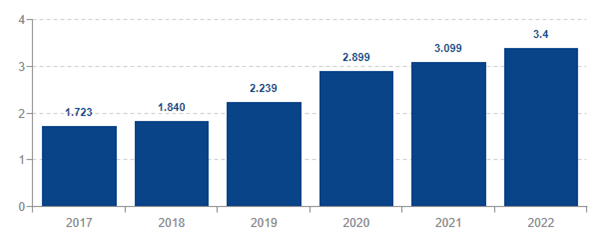
In the first half of 2023, the ISPRS IJGI journal has gained momentum, which you can see from the highlights of IJGI’s work detailed below. In the future, IJGI will continue to provide a high-quality academic exchange platform for scholars in related fields to share the most cutting-edge research results.
Editor-in-Chief’s Introduction:

Name: Prof. Dr. Wolfgang Kainz
Affiliation: Department of Geography and Area Studies, University of Vienna, Austria
Prof. Dr. Wolfgang Kainz holds a graduate degree in technical mathematics and a Ph.D. in geoinformation science from the Graz University of Technology, Austria. Since 1981, he has been active in research, development, and education in the GIS and cartography fields. His professional career includes full professor positions at academic institutions in the Netherlands and Austria. Currently, he is a professor emeritus at the University of Vienna, Austria, and a visiting professor at Wuhan University, China. In addition, he has held visiting professor positions in the United States of America, Brazil, Kuwait, Qatar, Taiwan, and the Czech Republic. His scientific interests lie in the mathematical foundations of GIS and cartography.
Highlights Review
2023 Feature Papers:
“GeoGraphVis: A Knowledge Graph and Geovisualization Empowered Cyberinfrastructure to Support Disaster Response and Humanitarian Aid”
by Wenwen Li, Sizhe Wang, Xiao Chen, Yuanyuan Tian, Zhining Gu, Anna Lopez-Carr, Andrew Schroeder, Kitty Currier, Mark Schildhauer and Rui Zhu
ISPRS Int. J. Geo-Inf. 2023, 12(3), 112; https://doi.org/10.3390/ijgi12030112
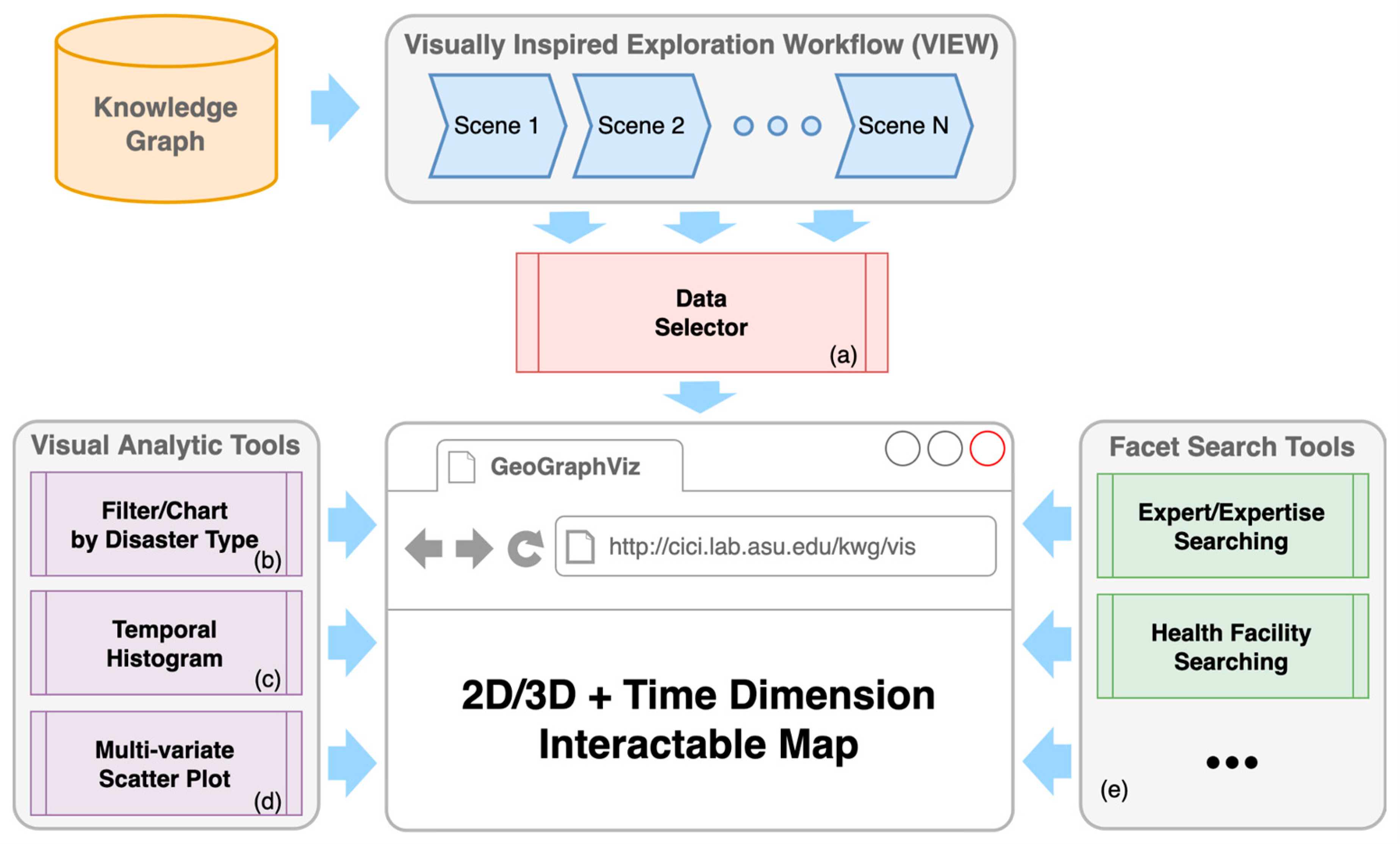
The framework of the GeoGraphVis interactive visualization system
“Mapping with ChatGPT”
by Ran Tao and Jinwen Xu
ISPRS Int. J. Geo-Inf. 2023, 12(7), 284; https://doi.org/10.3390/ijgi12070284
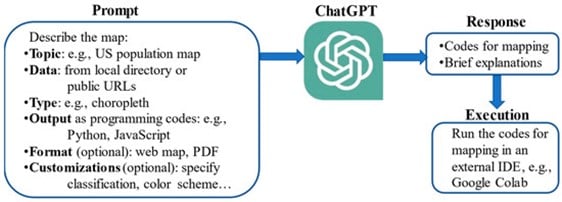
The process of creating thematic maps using ChatGPT
“Self-Supervised Representation Learning for Geographical Data—A Systematic Literature Review”
Padraig Corcoran and Irena Spasić
ISPRS Int. J. Geo-Inf. 2023, 12(2), 64; https://doi.org/10.3390/ijgi12020064
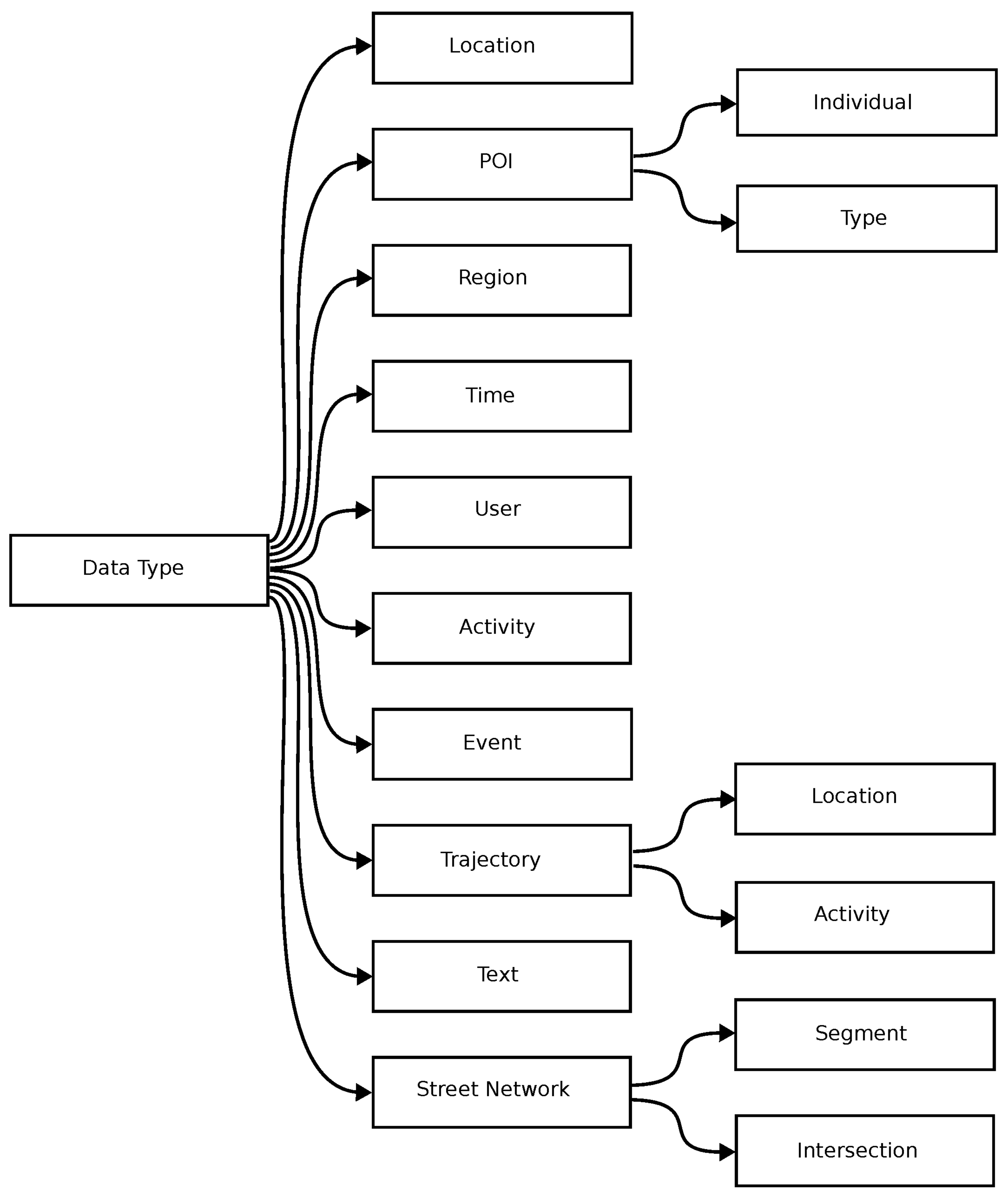
A taxonomy of geographical data types
2023 Special Issues:
1. “Application of Geographical Information System in Urban Design, Management or Evaluation”
Edited by Jiangfeng She, Jun Zhu and Min Yang
Submission Deadline: 31 December 2023
2. “Unlocking the Power of Geospatial Data: Semantic Information Extraction, Ontology Engineering, and Deep Learning for Knowledge Discovery”
Edited by Christos Chalkias, Marinos Kavouras, Margarita Kokla and Mara Nikolaidou
Submission Deadline: 15 February 2024
3. “Innovative GIS Models and Approaches for Large Environmental and Urban Applications in the Age of AI”
Edited by Peng Peng, Shu Wang, Maryam Lotfian, Feng Lu and Yunqiang Zhu
Submission Deadline: 20 March 2024
4. “Human-Induced Disaster and Conflict Analysis, Prediction, and Prevention by Geospatial Analytics and Information Systems”
Edited by Maria Antonia Brovelli and Songnian Li
Submission Deadline: 30 September 2023
5. “Harnessing the Geospatial Data Revolution for Promoting Sustainable Transport Systems”Edited by Xiao Li, Xiao Huang and Zhenlong Li
Submission Deadline: 30 November 2023
6. “Trustful and Ethical Use of Geospatial Data”
Edited by Maria Antonia Brovelli, Songnian Li and Ivana Ivánová
Submission Deadline: 31 December 2023
Visiting the Editor-in-Chief in the first half of 2023:

The IJGI publisher and Managing Editor visit the Editor-In-Chief, Wolfgang Kainz
Conference Cooperations:

Conference: The 9th International Conference on Geographical Information Systems Theory, Applications, and Management
Website: https://gistam.scitevents.org/Home.aspx
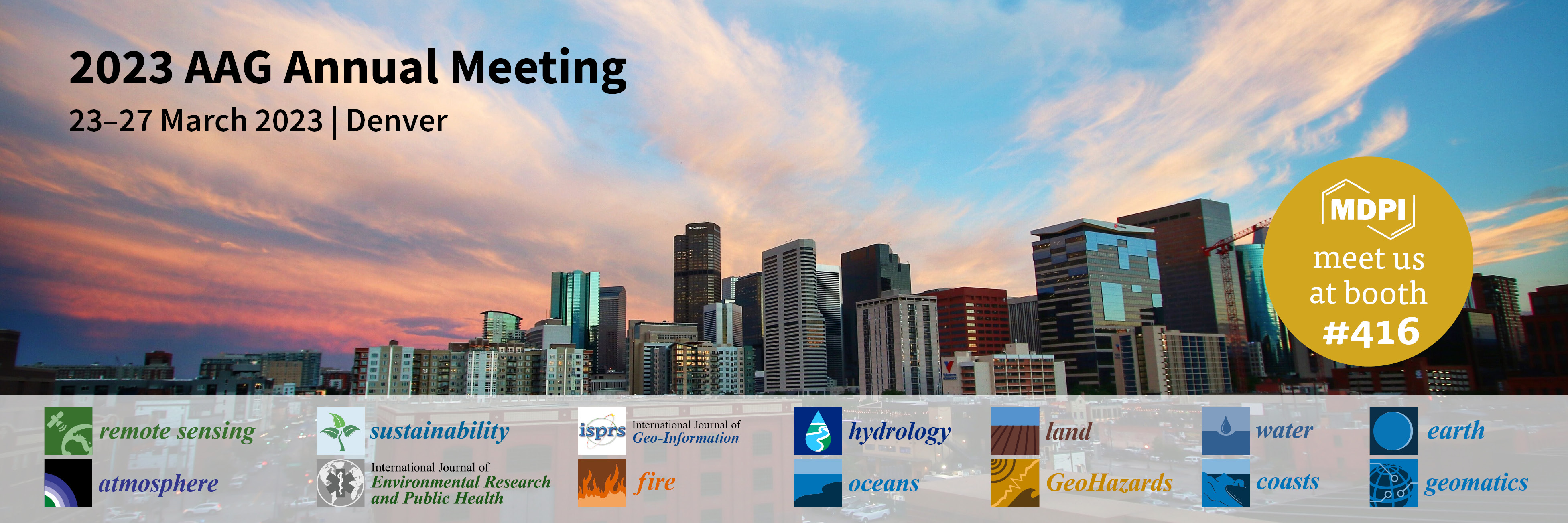
Conference: 2023 AAG Annual Meeting
Website: https://www.aag.org/events/aag2023/
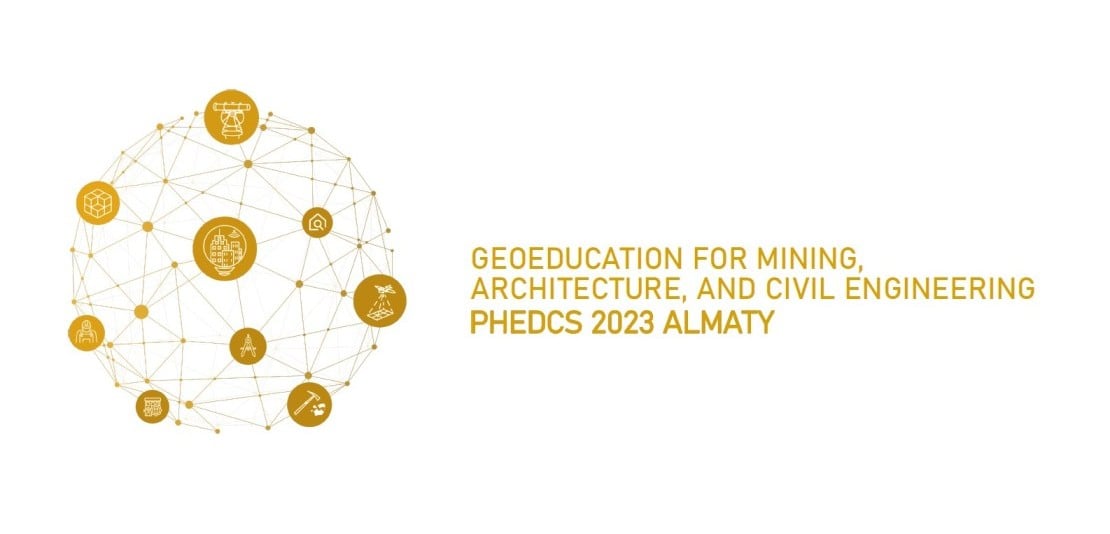
Conference: PHEDCS 2023, ALMATY—Geoeducation for Mining, Architecture, and Civil Engineering
Website: https://www.phedcs.com/
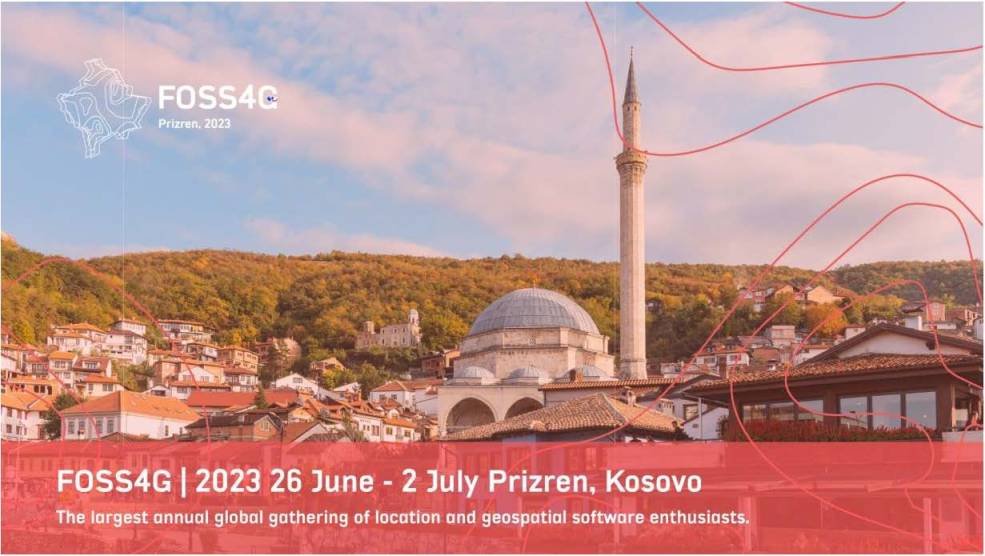
Conference: Free and Open Source Software for Geospatial
Website: https://2023.foss4g.org/
Webinars:
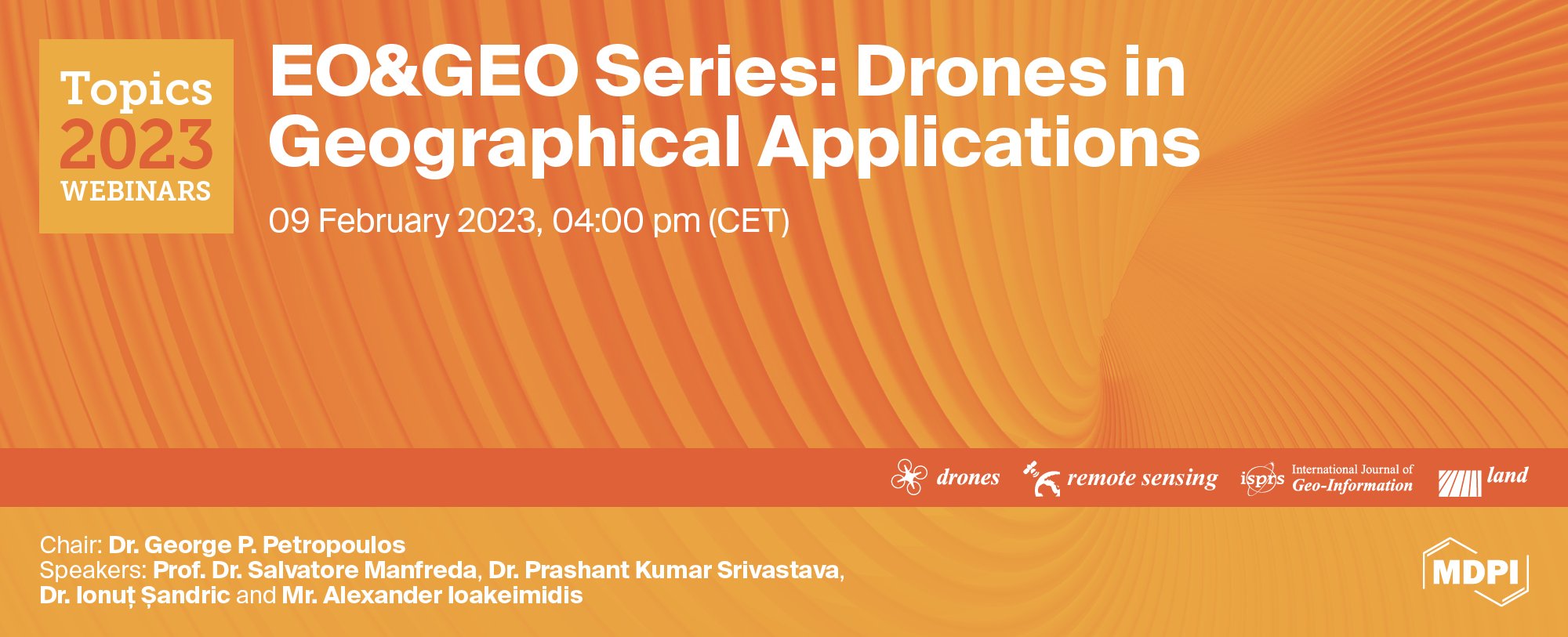
Webinar: EO&GEO Series: Drones in Geographical Applications
Website: https://topics-7.sciforum.net/
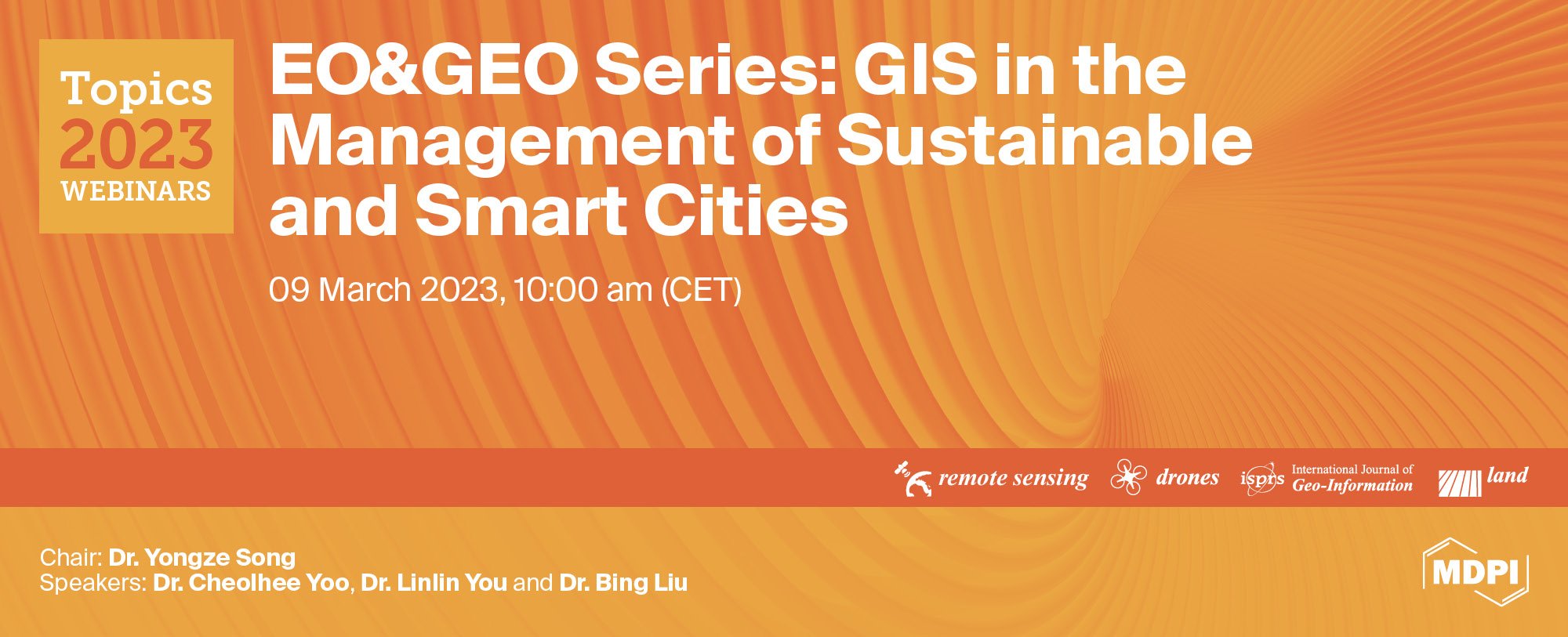
Webinar: EO&GEO Series: GIS in the Management of Sustainable and Smart Cities
Website: https://topics-8.sciforum.net/
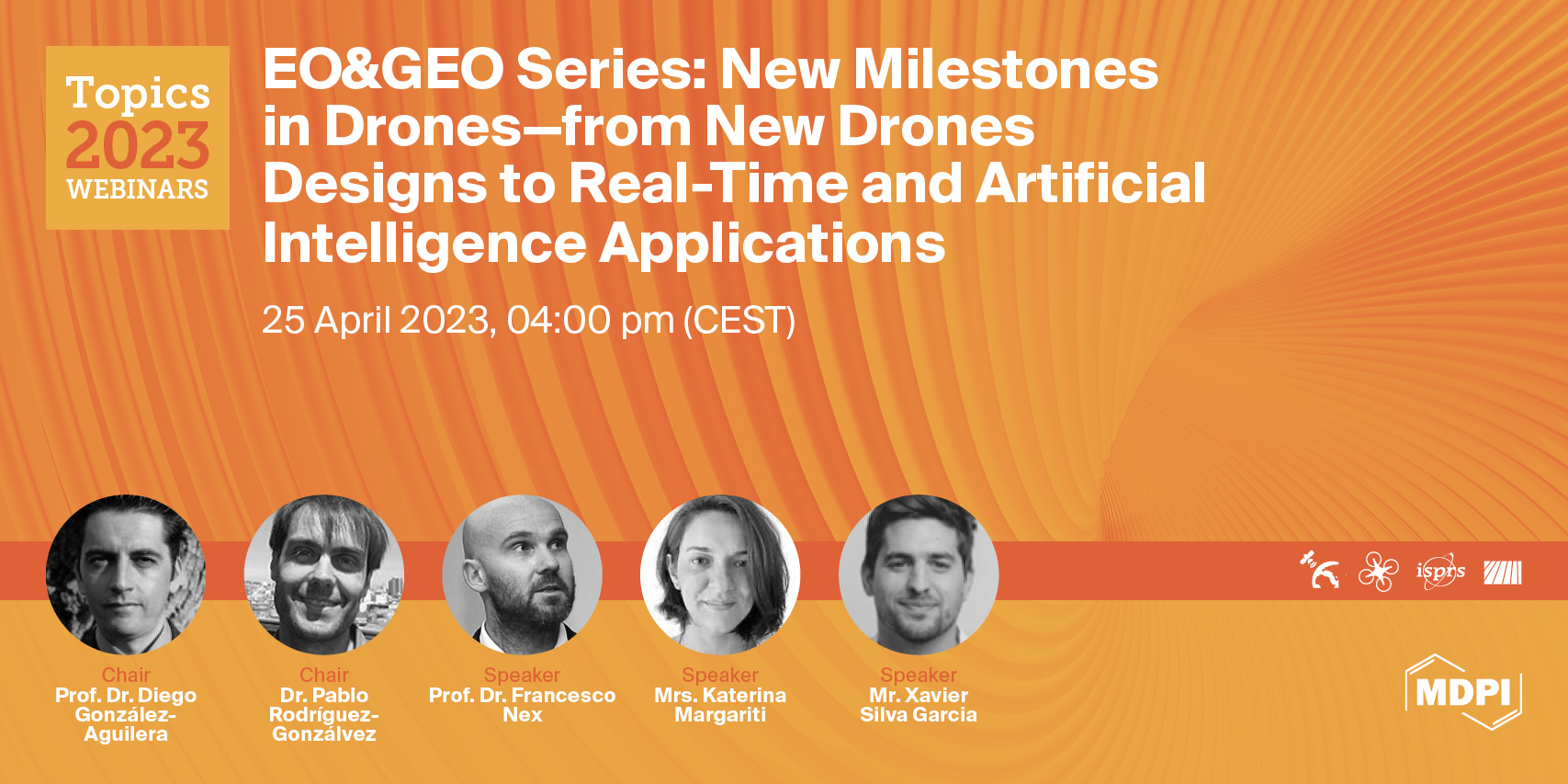
Webinar: EO&GEO Series: New Milestones in Drones—From New Drones Designs to Real-Time and Artificial Intelligence Applications
Website: https://www.mdpi.com/about/announcements/5637
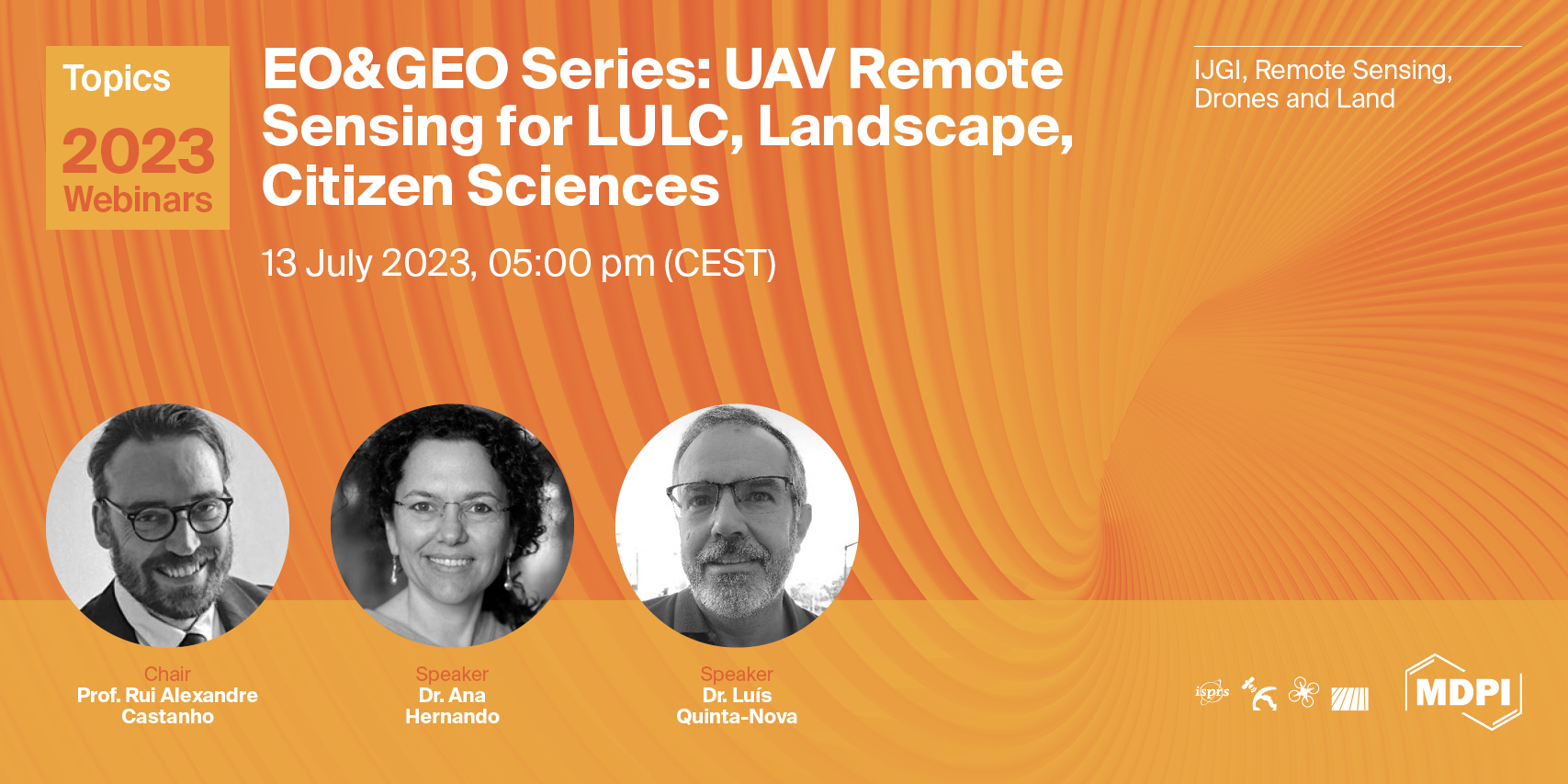
Webinar: EO&GEO Series: UAV Remote Sensing for LULC, Landscape, Citizen Sciences
Website: https://www.mdpi.com/about/announcements/6375
2023 Journal Awards:
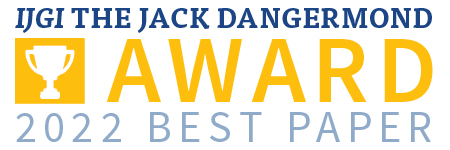
The Jack Dangermond Award, sponsored by MDPI and ESRI, was established to encourage and stimulate the submission of high-quality scientific papers by individual authors or groups to the journal, to promote and advertise the journal, and to honor the outstanding contributions of Jack Dangermond to research on and the development of geospatial sciences. The best paper of 2022 has been selected by the Jack Dangermond Award Committee, which will compete for the final Jack Dangermond Award, along with three other best papers produced between 2023 and 2025.
“A Forest of Forests: A Spatially Weighted and Computationally Efficient Formulation of Geographical Random Forests”
by Stefanos Georganos and Stamatis Kalogirou
ISPRS Int. J. Geo-Inf. 2022, 11(9), 471; https://doi.org/10.3390/ijgi11090471
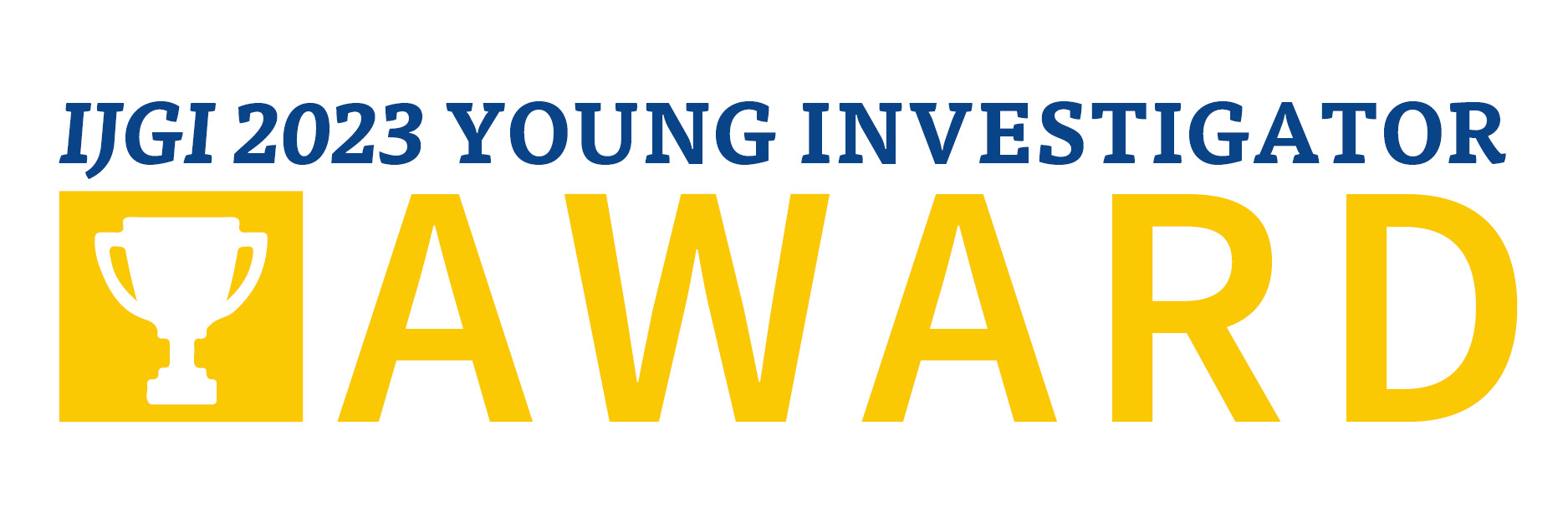
The 2023 Young Investigator Award will be given to one young investigator in recognition of their excellence in the field of geoinformation. All nominations will be assessed by an Award Evaluation Committee led by the Editor-in-Chief, Prof. Dr. Wolfgang Kainz.
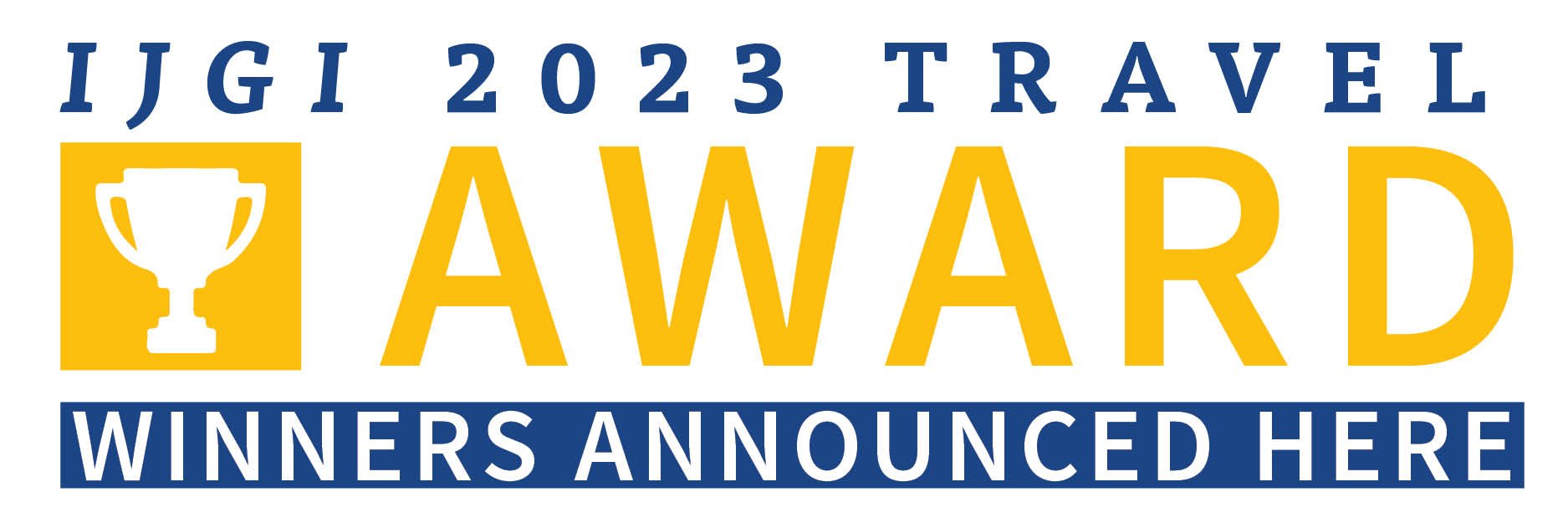
We are pleased to announce the winners of the IJGI 2023 Travel Award:
Ms. Dorothee Stiller, a Ph.D. student at the German Aerospace Center (DLR), German Remote Sensing Data Center (DFD), Wessling, Germany, focusing on new methodologies and experimental data sources for urban transportation research in the context of remote sensing and deep learning.
Ms. Yue Lin, a Ph.D. student at the Department of Geography, Ohio State University, Columbus, OH, USA. Her research and teaching interests include geographic information science, geospatial data science, geocomputation and machine learning, urban informatics, data privacy and digital justice, technology, and society.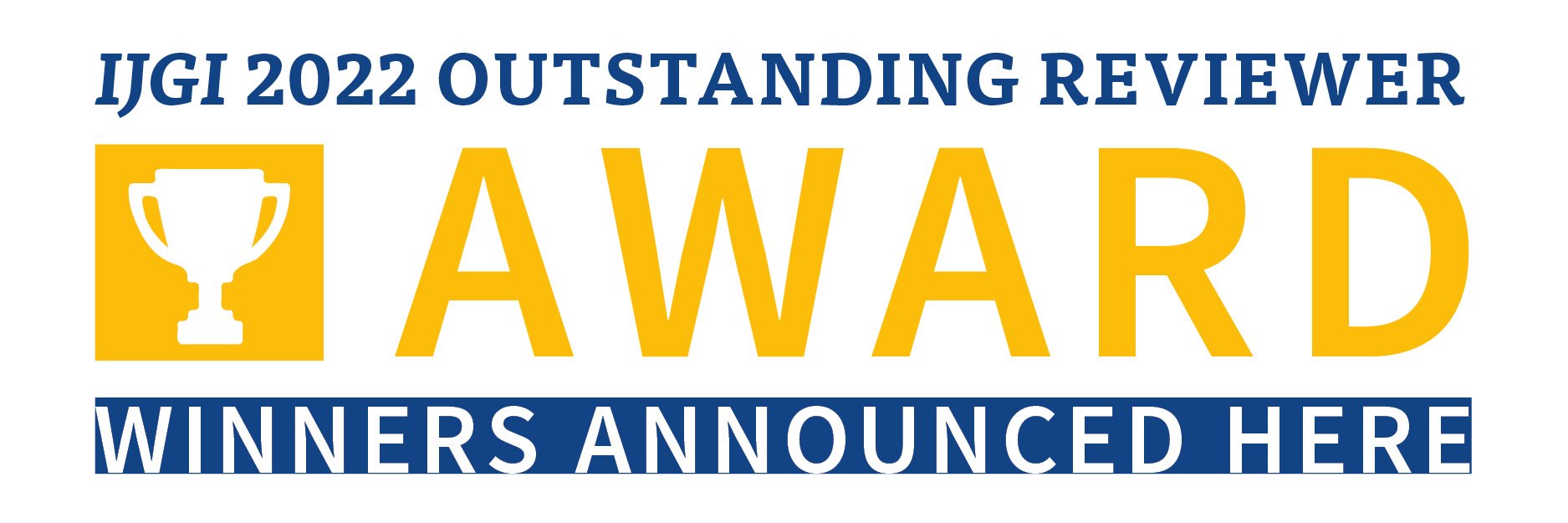
We are pleased to announce the winners of the IJGI 2022 Outstanding Reviewer Award. The IJGI Editorial Board and editorial team would like to gratefully acknowledge the time and energy dedicated by reviewers in checking the manuscripts submitted to the journal. It is due to their efforts that the high quality of the journal and quick turnaround are maintained. The winners are as follows:
Name: Dr. Fernando P. Fonseca
Affiliation: Universidade do Minho, Braga, Portugal
Research interests: environmental planning and management
Name: Dr. Polina Lemenkova
Affiliation: Université Libre de Bruxelles, Brussels, Belgium
Research interests: cartography; programming; data analysis; statistics; mapping; marine geology
Name: Dr. Alexandre B. Gonçalves
Affiliation: University of Lisbon, Lisboa, Portugal
Research interests: spatial analysis; optimization; geographical information systems; computational geometry; geographic modeling; spatial data algorithms
Name: Prof. Marcin Kulawiak
Affiliation: Gdansk University of Technology, Gdansk, Poland
Research interests: geographic information systems; geovisualization; remote sensing; spatial analysis; geoinformation; web mapping; mapping; geoprocessing; spatial statistics; satellite image analysis
Name: Dr. Dennis Edler
Affiliation: Ruhr-University Bochum, Bochum, Germany
Research interests: remote sensing; spatial memory; multimedia; experimental psychology; environmental psychology; GIS; human geography; education; virtual and augmented reality
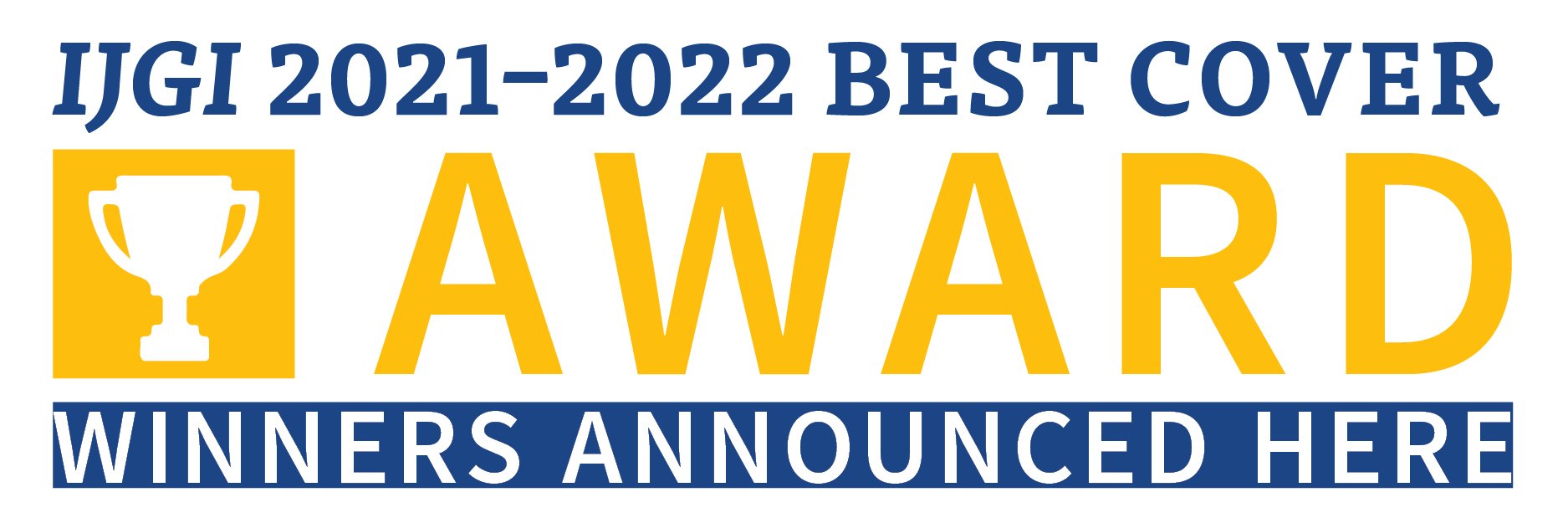
We are pleased to announce the winners of the IJGI 2021–2022 Best Cover Award:
“A Critical Comparison of 3D Digitization Techniques for Heritage Objects”
by Efstathios Adamopoulos, Fulvio Rinaudo and Liliana Ardissono
ISPRS Int. J. Geo-Inf. 2021, 10(1), 10; https://doi.org/10.3390/ijgi10010010
“Mapping Inuinnaqtun: The Role of Digital Technology in the Revival of Traditional Inuit Knowledge Ecosystems”
by Brendan Griebel and Darren Keith
ISPRS Int. J. Geo-Inf. 2021, 10(11), 749; https://doi.org/10.3390/ijgi10110749
“Historical Vltava River Valley–Various Historical Sources within Web Mapping Environment”
by Jiří Krejčí and Jiří Cajthaml
ISPRS Int. J. Geo-Inf. 2022, 11(1), 35; https://doi.org/10.3390/ijgi11010035
Final remarks
The editorial department of IJGI sincerely thanks all the teachers and students for their support and contribution. IJGI will uphold its original intention and work with all the scholars to do a good job in publishing services and contribute to the geographic information science research field.
31 July 2023
Topics Webinar | EO&GEO Series: UAV Remote Sensing for LULC, Landscape, Citizen Sciences, Held on 13 July 2023

On 13 July 2023, MDPI and IJGI, Remote Sensing, Drones and Land co-organized a Topics webinar EO&GEO Series: UAV Remote Sensing for LULC, Landscape, Citizen Sciences. The webinar focused on the more innovative applications of UAVs in environmental research and management.
A message from Prof. Rui Alexandre Castanho, the webinar Chair:
We find ourselves in a world where the exchange of knowledge, ideas, and experiences has become increasingly vital. Webinars like this provide an invaluable opportunity for us to collaborate, learn, and explore new frontiers together. Additionally, I would like to express my gratitude to the organizing committee for their tireless efforts in putting together this event.
You can watch the recorded webinar below:
Webinar Chair and Keynote Speakers:
- Prof. Rui Alexandre Castanho, Department of Management, WSB University, Dabrowa Górnicza, Poland;
- Dr. Ana Hernando, Departamento de Ingeniería y Gestión Forestal y Ambiental Department of Forestry and Environmental Engineering and Management, Universidad Politécnica de Madrid, Spain;
- Dr. Luís Quinta-Nova, Agrarian Higher School, Polytechnic Institute of Castelo Branco, Castelo Branco, Portugal.
Relevant Topic:
“Advances in Earth Observation and Geosciences”
Edited by: Prof. Dr. Diego González-Aguilera and Dr. Pablo Rodríguez-Gonzálvez
Abstract submission deadline: 31 December 2023
Relevant Special Issues:
"Land-Use Planning in Borderlands and Ultra-Peripheral Regions"
Edited by: Dr. Rui Alexandre Castanho, Dr. José Manuel Naranjo Gómez, Prof. Dr. José Martín Gallardo, Dr. José Cabezas Fernández and Prof. Dr. Luís Quinta-Nova
"Planning Peripheral and Ultra-Peripheral Infrastructures"
Edited by: Prof. Dr. Rui Alexandre Castanho, Prof. Dr. Ana Vulevic, Prof. Dr. Gualter Couto and Prof. Dr. José Manuel Naranjo Gómez
"Sustainability in Tourism Activities and the Low-Density and Peripheral Territories"
Edited by: Prof. Dr. Rui Alexandre Castanho and Prof. Dr. Gualter Couto
"Remote Sensing Applications in Land Use, Land-Use Change and Forestry (LULUCF)"
Edited by: Dr. Ali Nadir Arslan, Prof. Dr. Katarzyna Dabrowska-Zielinska and Dr. Jose Manuel Álvarez-Martínez
"Resilient UAV Autonomy and Remote Sensing"
Edited by: Dr. Chi Chen, Dr. San Jiang, Dr. Xijiang Chen, Dr. Mao Tian, Dr. Jianping Li and Dr. Jian Zhou
"Advances on Land Cover/Land Use Ontologies for Innovative Production/Utilization of Land Information"
Edited by: Dr. Antonio Di Gregorio, Dr. Matieu Henry, Chris T. Hill, Prof. John Latham, Prof. Dr. Mohammed Abed Hossain, Dr. Khalid Mahmood and Dr. Foster Mensah
Relevant feature paper:
“The Land Use Mapping Techniques (Including the Areas Used by Pedestrians) Based on Low-Level Aerial Imagery”
by Maciej Smaczyński, Beata Medyńska-Gulij and Łukasz Halik
ISPRS Int. J. Geo-Inf. 2020, 9(12), 754; https://doi.org/10.3390/ijgi9120754
27 July 2023
MDPI Insights: The CEO's Letter #2 - Open Peer-Review and IJERPH

Welcome to the MDPI Insights: The CEO's Letter.
In these monthly letters, I will showcase two key aspects of our work at MDPI: our commitment to empowering researchers and our determination to facilitating open scientific exchange.
Opening Thoughts

Open Peer Review Reports
Continuing the topic of openness from my inaugural monthly CEO letter, in these Opening Thoughts, I highlight the growth and importance of open peer-review reports at MDPI. Open peer reports align with the principles of open science, making the publishing process more transparent and facilitating rigorous peer review.
MDPI journals operate an open peer-review option by default, allowing authors to publish review reports and author responses (often referred to as open reports) together with the published paper. Publishing the reviewer reports and author responses together with the article provides greater transparency and trust for readers, as this allows them to track the editorial decision-making process. Open peer-review also encourages reviewers and editors to provide high-quality comments, as these will be made public if the article is accepted for publication.
Start and Growth of Open Peer Review at MDPI
The MDPI journal Life was a pioneer in offering this opportunity to its authors in 2014. The first MDPI article with peer-review reports openly published was a review by the Nobel Laureate Werner Arber, in which the review reports were published as supplementary material. By 2018, open peer-review was available across all MDPI journals. As such, MDPI authors have embraced the open peer-review model, providing a steady increase in the number of MDPI articles. As of 2023, approximately one-third (34.0%) of MDPI articles were published with open review reports.
As at July 2023, the percentage of MDPI articles published with open peer review has increased to 36.2% of the total papers published in 2023 so far, indicating ongoing growth in adoption.
Open peer review continues to play a critical role in the assessment of the peer-review process in Life. For further insights, please see the recent editorial by Dr. Pabulo Henrique Rampelotto, the former Editor-in-Chief of Life, who spearheaded the implementation of the open peer-review process.
Benefits of Open Peer Review
The benefits of open peer review include increased transparency, trust and constructive feedback. To promote open communication further and increase the robustness of the peer-review process, we encourage reviewers to sign their reports so that their name appears on the review report (this process is referred to as open identity). The default option is for reviewers to remain anonymous; however, by signing the reports, reviewers receive direct credit for their contribution to the peer-review process and show their commitment towards open science.
As the leading open access publisher, MDPI remains committed to promoting open peer-review and encourages authors to choose this approach. Our goal is to provide a rigorous and transparent peer-review process that benefits the scientific community, and we believe that open peer-review is a vital step in fostering openness and collaboration in scientific communication.
Impactful Research

MDPI Papers Cited in the News – IJERPH edition
Every month, our corporate marketing team compiles data from Altmetrics to create a list of MDPI papers that have been cited in the news. This list continues to grow as renowned news outlets regularly reference research published by MDPI in their articles.
During 2022, a total of 111,965 MDPI research papers were mentioned in prominent news outlets such as National Geographic, The Washington Post, Forbes, The Guardian, the BBC, CNN, Time, and Harvard Business Review.
Highly Cited Journal Publications
IJERPH, known for publishing impactful research, received the most news mentions among all MDPI journals in 2022, based on Altmetrics data:
- International Journal of Environmental Research and Public Health: 3509 mentions
- Nutrients: 2698 mentions
- International Journal of Molecular Sciences: 1701 mentions
- Journal of Clinical Medicine: 1131 mentions
- Viruses: 1111 mentions
These numbers show the recognition and impact of the articles published in IJERPH. For a more detailed view of the journal’s most cited and viewed papers, you can visit here. In total, IJERPH has garnered over 28,000 mentions in prominent news outlets, and as at July 2023, an impressive count of over 17,000 papers cited 10 times or more. These figures highlight the impactful contribution of IJERPH publications to the scientific community.
Example of Recent Mentions
During May and June 2023, a noteworthy selection of articles from IJERPH was cited in news articles, including:
The Washington Post: “Bringing nature inside can improve your health. Here’s how to do it.”
IJERPH paper: “Physiological Benefits of Viewing Nature: A Systematic Review of Indoor Experiments”
Harvard Business Review: “How to Take Better Breaks at Work, According to Research”
IJERPH paper: “Canine-Assisted Therapy Improves Well-Being in Nurses”
National Geographic: “Lyme disease is spreading fast—but a vaccine may be on the way”
IJERPH paper: “Range Expansion of Tick Disease Vectors in North America: Implications for Spread of Tick-Borne Disease”
Inside MDPI

MDPI Develops an Artificial Intelligence Tool to Enhance the Peer-Review Process
At MDPI, we believe that rigorous peer-review is the corner-stone of high-quality academic publishing. We are grateful to the scholars who generously dedicate their time to peer-review articles submitted to MDPI journals. Their contributions are invaluable to the advancement of science.
Peer-review is a critical part of the publication process, ensuring that MDPI upholds the highest quality standards for the papers we publish. Every manuscript submitted to our journals undergoes a comprehensive peer-review process conducted by subject-matter experts.
To further enhance our peer-review process, our Data Analytics team has developed an Artificial Intelligence (AI) tool designed to support the selection of reviewers. This proprietary tool utilizes Natural Language Processing (NLP), a specially designed AI language model, to extract information from the title and abstract of submitted papers. It then searches our database for similar manuscripts and suggests potential reviewers based on this analysis. Integrated with MDPI's submission system (SuSy), the AI tool cross-references the suggested candidates with our reviewer database to verify their invitation status and availability.
The goal of this tool is to provide better targeted peer-review invitations, reducing the number of emails sent for each paper and increasing the efficiency of our editorial staff.
In the near future, our Data Analytics team plans to deploy similar AI projects to improve other critical aspects of our services, offering an enhanced experience to our authors and readers.
Click here to learn about MDPI’s review process, including procedures, responsibilities, and benefits.
Read more:
Coming Together for Science
The Future of IJERPH

On 5 July 2023, Prof. Dr. Paul B. Tchounwou, the founding Editor-in-Chief of IJERPH, along with five Section Editors in Chief (Prof. Dr. Germán Vicente-Rodríguez, Prof. Dr. Karl Goodkin, Prof. Dr. William A. Toscano, Prof. Dr. Jimmy T. Efird, and Prof. Dr. William Douglas Evans), gathered in Basel to discuss the future of the journal. The meeting provided an opportunity to address the recent decision by The Web of Science to delist IJERPH due to the journal failing the Content Relevance criterion, and propose best strategies that will ensure high scientific rigor as well as a clear scope and aim of IJERPH, going forward.
While the delisting is disappointing for IJERPH, as well as for our authors, academic editors, and the entire scientific community supporting our journal, we see it as an opportunity to reflect and prepare for the future direction of the journal.
Since its launch in 2004, IJERPH’s vision and mission have evolved to be more complete and comprehensive in engaging scientific communities. In light of this, we will refresh the journal’s aims and scope, ensuring they align with the organic expansion of IJERPH. Additionally, we will restructure the journal sections into broader categories, encouraging collaborative research and transdisciplinary approaches for authors. This is designed to foster collaboration and knowledge exchange among diverse fields, contributing to a holistic understanding of health promotion and disease prevention. We are confident that these next steps will enhance the scientific strength and societal impact of our journal.

Journal Achievements
In addition to the productive discussions, we took the time to celebrate some of the remarkable achievements of IJERPH, which I highlight below:
- Founded by Prof. Dr. Paul B. Tchounwou in 2004
- Indexed in PubMed in 2008
- Received its first Impact Factor in 2012
- Published its 5000th paper in 2017
- Over 60,000 papers published as at June 30, 2023
- 131,628,173 paper views in 2018–2022
- Over 28,000 mentions in prominent news outlets
- 17,000 papers cited 10 times or more as at June 30, 2023
- No.1 journal in the 2022 Google Scholar Metrics in the category of Public Health
- Awarded several editions of Young Investigator Awards, Travel Awards, and Outstanding Reviewer Awards since 2018.
These achievements showcase the journal’s significant contributions to the field and its impact on global health. We are proud of the exceptional work accomplished by the IJERPH team and look forward to building upon this success in the years to come.
Closing Thoughts
MDPI’s Impact in Spain

During the past month, I had the opportunity to visit our new office building in Barcelona, where I met with our local colleagues to discuss the ways we serve the scholarly community, particularly in Spain. The multi-functional office plays a vital role in supporting various business needs, including editorial, design, conference management, data analytics, journal relationship management, publishing partnerships, and collaborations with societies.
Spain holds a significant position in MDPI’s global market, ranking as the fourth-largest contributor to the total number of papers published by MDPI as at July 2023, ranking next to Italy, the USA, and China, with Germany completing the top five.
The Numbers
Out of the 1,680,000 total MDPI articles published as at 25 July, almost 80,000 articles are contributed by Spanish authors, representing nearly 40,000 unique authors affiliated with Spanish institutions. Remarkably, over 6,300 of these authors hold editorial board member (EBM) positions within MDPI journals, with 30 of them serving as Editors-in-Chief (EiCs).
Our commitment to working with institutions is very evident in Spain, where we have successfully established over 40 Institutional Open Access Programs (IOAP) with esteemed institutions such as the University of Barcelona, the Autonomous University of Barcelona, Pompeu Fabra University, the University of Navarre, and Complutense University of Madrid.
Over the past five years, we have successfully organized eight in-person conferences in Barcelona, attracting over 1,150 registrations, with two forthcoming events scheduled for 2024. Barcelona's excellent connectivity to international airports makes it easily accessible to participants from around the world. Its welcoming atmosphere provides us with the perfect environment for knowledge-sharing, networking, and contributing to the local economy.
Our growth and presence in Spain are a true testament to the incredible service we provide to the scholarly community and the relationships we foster through responsive and collaborative communication. We look forward to continuing to support Spanish scholars, providing them a valuable and trusted experience with MDPI, the leader in open access publishing.
Testimonials
I close this letter as I did in the first edition, by sharing testimonials from our stakeholders. Here are a few IJERPH testimonials from a Spanish guest editor and an author:
Guest Editor
“I want to thank the kindness, attention and professionalism of the MDPI team throughout the editorial process of the Special Issue. I believe that it is a very professional and quality editorial process.”
- Professor Víctor Arufe-Giráldez, University of A Coruña
Special Issue in International Journal of Environmental Research and Public Health: Physical Activity in Childhood and Adolescence
Special Issue in International Journal of Environmental Research and Public Health: Physical Education: Present and Future
__
Author
“I want to thank the rigor of the revisions made to the manuscripts to improve their quality, the support to the authors for the editor assignment system they have and the follow-up they carry out, for the speed in answering and in carrying out the entire process of the revision, and for doing all this at an affordable price.”
- Dr. María Paz García-Caro, University of Granada
Article in International Journal of Environmental Research and Public Health: Factors Associated with Suicide Attempts and Suicides in the General Population of Andalusia (Spain)
Chief Executive Officer
MDPI AG
20 July 2023
Meet the Editors | Interview with Dr. Dev Raj Paudyal—Associate Editor of ISPRS International Journal of Geo-Information

We had the pleasure of speaking with the Associate Editor of the ISPRS International Journal of Geo-Information (IJGI, ISSN: 2220-9964), Dr. Dev Raj Paudyal. Our goal is to present a behind-the-scenes look at the journal and provide insights into the Associate Editor's perspective on the publishing process.
Dr. Dev Raj Paudyal has been working as a Full Time Faculty Member at the School of Surveying and Built Environment, University of Southern Queensland (UniSQ), Australia, since 2010. Dr. Paudyal is teaching mine surveying, spatial science for engineers, and core surveying/spatial science subjects. Dr. Paudyal is also working as a Visiting Professor at the Nepal Open University (NOU), Nepal and the Institute of Engineering (WRC), Tribhuvan University, Nepal. Dr. Paudyal is a member of the Subject Committee at NOU and helped to develop the curriculum for a master’s degree in geoinformatics in 2019. Dr. Paudyal has also collaborated with the Kathmandu University of Nepal. He worked as a Research Scholar at the Graduate School of Design, Harvard University, USA (2015-2016). Dr. Paudyal completed his Ph.D. at the University of Southern Queensland (UniSQ), Australia, and M.Sc. (specialization in land administration) at the International Institute for Geo-Information Science and Earth Observation (ITC), the Netherlands. He served as the President of the International Geospatial Society (2013–2015), Co-Chair of the International Society for Photogrammetry and Remote Sensing (ISPRS)-WGIV/4: (Geospatial Data Infrastructure 2012–2022), and on the Board of Directors of the Global Spatial Data Infrastructure (GSDI) Association (2014–2018). In addition to this, Dr. Paudyal is a member of the International Society for Photogrammetry and Remote Sensing (ISPRS), a member of the International Global Navigation Satellite Systems (GNSS), a member of the Mixed Methods International Research Association (MMIRA), and a life member of the Nepal Photogrammetry and Remote Sensing Society. He has more than 25 years of professional and research experience, which includes 10 years of full-time industry experience in the Survey Department (National Mapping Agency) of Nepal and 15 years of teaching and research experience in Australia, India, and Nepal.
The following is a short Q&A with Dr. Dev Raj Paudyal, who shared his vision for the journal with us, as well as his views of the research area and open access publishing:
1. Could you give us a short overview of the research you are currently undertaking?
My research interest areas are SDI, digital twins, the use of spatial science and technology in urban planning and natural resource management, pro-poor land management, indigenous land management, regularization/upgrading of informal settlements, land administration, land use, citizen science and open/distance education. I have supervised twenty-five successful postgraduate and honor students and I am currently supervising eight Ph.D. students and five honor students. I have also been consulted on SDI, the application of geospatial information in disaster risk management, land administration, and spatial data management by the Ministry of Land Reform and Management, Kathmandu University, Tribhuwan University, Institute of Engineering, and the World Bank.
2. As the Associate Editor who takes charge of the IJGI scope of spatial data infrastructures, what do you think are the latest developments in this field?
The latest developments in this field are open SDI, open data, VGI and digital twins, the integration of artificial intelligence (AI), and mobile mapping and crowd-sourced data.
3. As IJGI is an open access journal, can you share with us your opinion regarding the open access model of publication?
Open Access journals offer significant benefits. The published papers are freely available to everyone, which promotes inclusivity and disseminates global knowledge. In addition to this, this advances the progress of science and scholarship as the publications are more visible and accessible. Basically, the researchers from the south and the developing world receive more benefit. Openly accessible research also encourages public trust in science and provides opportunities for community engagement. The APC model is more cost-effective than the traditional subscription-based model. A good-quality open access journal such as IJGI has a clear submission and peer-review process similar to traditional subscription-based journals, so the quality has not been compromised and it receives popularity among the geospatial research community.
IJGI is getting more popular day by day. The expectations include a robust peer-review process and publication of high-quality research works, timely publication, and some incentives for regular publishers and academic editors.
11 July 2023
MDPI’s Newly Launched Journals in June 2023
With the first issue released in June 2023, five new MDPI journals disseminating multi-disciplinary science are due to launch, which will cover the subjects of medicine & pharmacology, biology and physical sciences.
The newly launched journals will be overseen by professional Editorial Board Members and Editors to ensure an accurate and rapid publication, rigorous peer review and broad visibility.
Please feel free to browse and discover more about the new journals below.
| Journal | Founding Editor-in-Chief | Journal topics (selected) |
| Prof. Dr. Jun Ma, Peking University, China| Editorial | view inaugural issue | growth and development; diet and nutrients; school health promotion policies and practices; child health and care; adolescent health and wellbeing | view journal scope | submit an article |
|
| Prof. Dr. Bernd Rehm, Griffith University, Australia | Editorial | view inaugural issue | DNA and gene synthesis; synthetic transcription factors; protein engineering; viral engineering; metabolic engineering | view journal scope | submit an article | |
| Prof. Dr. Varsha Gandhi, University of Texas MD Anderson Cancer Center, USA | Editorial | view inaugural issue | lymphatics; cancers associated with lymphocytes and lymphoblasts; lymphatic tissues; lymphoma; lymphoid leukemia | view journal scope | submit an article | |
| Dr. Bradley Turner, University of Melbourne, Australia | Editorial | view inaugural issue | multiple sclerosis; amyotrophic lateral sclerosis; primary lateral sclerosis; atherosclerosis; systemic sclerosis | view journal scope | submit an article | |
 |
Prof. Dr. Clemens Burda, Case Western Reserve University, USA | Editorial | view inaugural issue | Gamma ray, X-ray, and UV–Vis spectroscopies; NIR/mid-infrared/Raman spectroscopy; microwave and THz spectroscopy; high-resolution gas-phase atomic, molecular, and cluster spectroscopy; MS, NMR, and EPR spectroscopy | view journal scope | submit an article |
We wish to thank everyone who has supported the development of open access publishing. You are welcome to submit an application to the New Journal Committee (newjournal-committee@mdpi.com) if you would like to create more new journals.
10 July 2023
ISPRS International Journal of Geo-Information Receives an Increased Impact Factor of 3.4

We are pleased to share that the ISPRS International Journal of Geo-Information (IJGI, ISSN: 2220-9964) was awarded an increased Impact Factor of 3.4 in the 2022 Journal Citation Reports™ released by Clarivate in June 2023. IJGI ranks in Q2 (18 among 49 titles) in the “Geography, Physical” category.
For further statistics, please visit https://www.mdpi.com/journal/ijgi/stats.
The support and dedication of all journal editors, reviewers, authors, and readers are essential to our excellent performance. Thank you to everyone who has contributed to and supported our journal.



